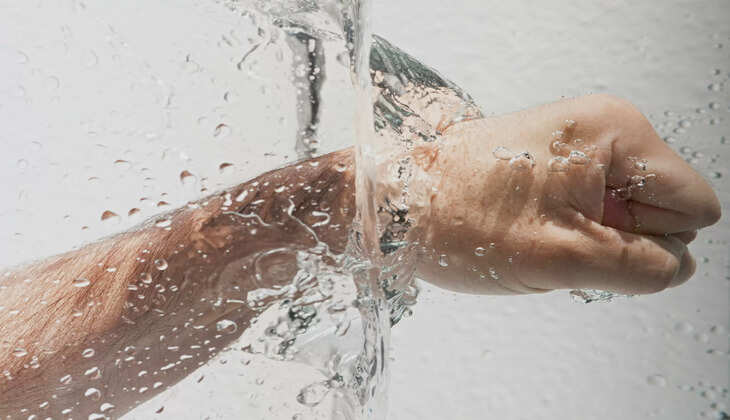How To Keep Hygiene Yourself?
Updated: May 28, 2024, 12:06 IST

Maintaining personal hygiene is essential for overall health and well-being. Good hygiene practices can help prevent infections, boost confidence, and improve social interactions. Here are some key tips on how to keep yourself hygienic:
Daily Hygiene Practices
-
Showering/Bathing
- Frequency: Shower or bathe daily to remove dirt, sweat, and bacteria from your skin.
- Technique: Use a mild soap and warm water. Pay special attention to areas that sweat more, such as armpits, groin, and feet.
-
Hand Hygiene
- Washing: Wash your hands frequently with soap and water for at least 20 seconds, especially before eating, after using the restroom, and after coughing or sneezing.
- Sanitizer: Use an alcohol-based hand sanitizer when soap and water are not available.
-
Oral Hygiene
- Brushing: Brush your teeth at least twice a day with fluoride toothpaste.
- Flossing: Floss daily to remove food particles and plaque from between your teeth.
- Mouthwash: Use an antiseptic mouthwash to help kill bacteria and freshen breath.
-
Hair Care
- Washing: Shampoo your hair regularly to keep it clean and free of excess oil.
- Conditioning: Use conditioner to maintain hair health and prevent dryness.
-
Nail Care
- Trimming: Keep your nails trimmed and clean to prevent dirt and bacteria buildup.
- Cleaning: Use a nail brush to clean under your nails regularly.
-
Foot Care
- Washing: Wash your feet daily, paying attention to the areas between your toes.
- Drying: Thoroughly dry your feet to prevent fungal infections like athlete’s foot.
- Footwear: Wear clean socks and change them daily. Choose breathable shoes to reduce sweat and odor.
Periodic Hygiene Practices
-
Clothing
- Clean Clothes: Wear clean clothes and change them daily. Wash clothing regularly, especially underwear and socks.
- Laundry: Follow proper laundry practices, using appropriate detergents and washing temperatures to remove germs and stains.
-
Bedding
- Washing: Change and wash bed sheets, pillowcases, and blankets regularly (at least once a week).
- Air Out: Allow your bed to air out each morning before making it to reduce moisture buildup.
-
Personal Items
- Toothbrush: Replace your toothbrush every three months or sooner if bristles are frayed.
- Razors: Replace razors regularly to ensure a clean shave and prevent skin irritation.
Hygiene in Public and Shared Spaces
-
Restroom Hygiene
- Toilet Use: Use toilet seat covers or tissue paper if available. Flush the toilet with the lid down to reduce the spread of germs.
- Hand Drying: Use a clean towel or air dryer after washing your hands.
-
Eating Out
- Utensils and Surfaces: Use clean utensils and sanitize surfaces if necessary. Avoid sharing utensils and drinkware.
-
Public Transport
- Handrails and Handles: Avoid touching your face after holding onto handrails and handles. Use hand sanitizer afterward.
Special Considerations
-
Menstrual Hygiene
- Products: Use sanitary pads, tampons, or menstrual cups and change them regularly.
- Cleaning: Maintain genital hygiene by washing with water and mild soap.
-
Intimate Hygiene
- Gentle Cleansing: Use gentle, unscented soap and water to clean the genital area.
- Breathable Fabrics: Wear breathable cotton underwear and avoid tight-fitting clothing.
Healthy Habits for Overall Hygiene
-
Balanced Diet
- Nutrition: Eat a balanced diet to support your body’s natural defenses and skin health.
-
Hydration
- Water Intake: Drink plenty of water to keep your skin and body hydrated.
-
Sleep and Stress Management
- Adequate Rest: Ensure you get enough sleep to help your body recover and maintain its functions.
- Stress Reduction: Manage stress through relaxation techniques, as stress can affect your overall hygiene and health.
By incorporating these practices into your daily routine, you can maintain good personal hygiene, reduce the risk of infections, and promote overall health and well-being.
